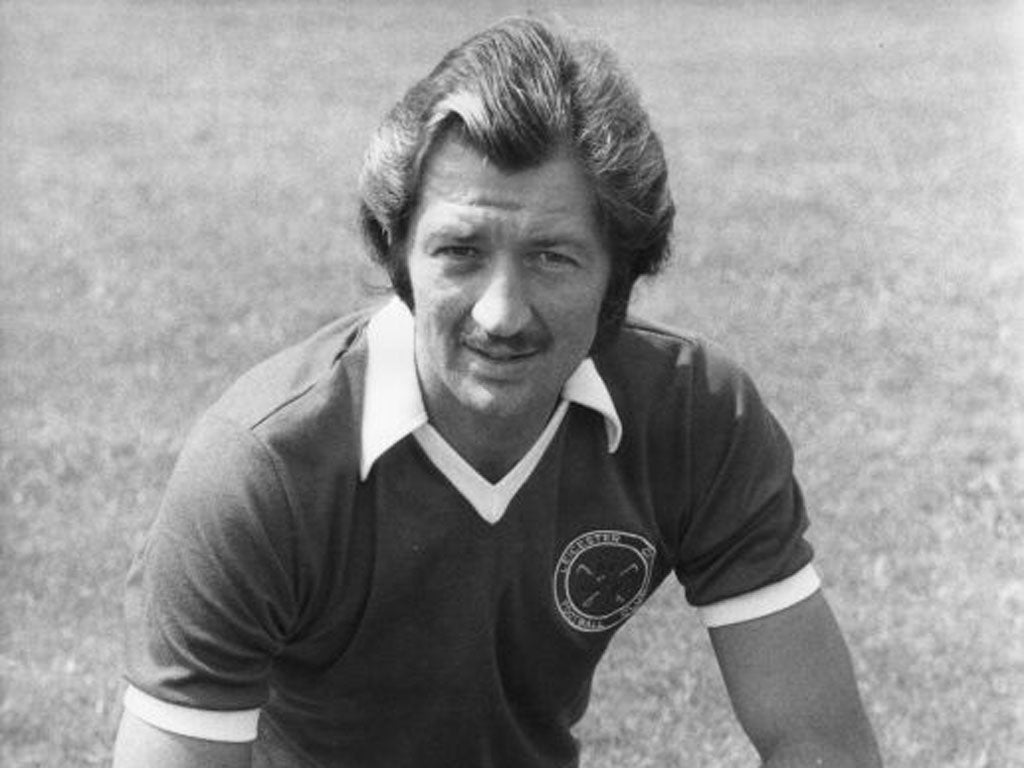Kevin Garside: Oh for some flair like Frank's to fire up dull England
The Last Word: Hodgson’s brief is to deliver us from the golden age that never was

Function over fun? Caution above excitement? James Milner before Frank Worthington? Questions that reach into the heart of Roy Hodgson's England malaise. What kind of experience does Hodgson want England football viewing to be? He cannot be satisfied with the grey palate of Warsaw. If he is, then the age of irrelevance might soon be upon the national side.
This last weekend the Premier League took us once more down Thunder Road. Tomorrow the Champions League rolls out across the Continent the finest collection of footballers on earth. Even in the group stages there is sufficient top-end action to quicken the pulse. Meanwhile, England serve up dish after insipid dish of appetite suppressants, crystallised in the moribund selection of Milner as a wide player on the right. This is a classic expression of insecurity, a choice governed by the desire to stifle the opposition, not carve them in two.
Milner is a willing soul full of industry and toil, but he has neither pace nor trickery. He cannot go past a man nor dissemble with a dip of the shoulder. The odd drag-back or back-heel should not blind us to the broad sweep of offensive mediocrity delivered. The fault is not his but Hodgson's for asking him to plod out of position as insurance against a full-back vulnerable in defence. Poland, like Ukraine at Wembley, were not world-beaters but competent footballers imbued with a sense of purpose and drive. They attacked with the kind of pace and precision England could not muster. The demand was for speed and ambition, for Alex Oxlade-Chamberlain to start, or even Adam Johnson, whose instinct is to take the opposition on with menaces.
A bit like Worthington. Fabulous Frank played with his socks around his ankles, an affectation that was an act of separation. He wanted us to know that he was different, not your ordinary footballer. He fancied himself as a bit of a lad. His autobiography, entitled One Hump or Two?, pictured him dropping sugar into his tea, a rather naff double entendre redolent of alpha male flourishes in the Seventies. Well, it was the epoch of Bodie and Doyle and The Sweeney.
Worthington made his England debut in 1974 as a substitute for Stanley Bowles, another style refugee distrusted by the footballing establishment. This was the all too brief Joe Mercer period, a desperately short, seven-match antidote to the staid fodder that would come to characterise the post-Ramsey era and beyond. The football landscape after World Cup qualifying elimination in 1973-74 was a grim vista. Sir Alf paid for England's failure with his job. In the interim before the arrival of the dire Don Revie, the FA invited Mercer into the breach. The parallels with Hodgson hum with similarities.
The great age of the Bobbies and the Jimmies, the Nobbies and the Jacks was over. The utilitarians were about to take over the asylum with their long balls and route one dogma. Except Mercer did not see the game that way. He liked players with flair and panache. He understood football was a 90-minute reprieve from the the last knockings of the industrial mire detaining the English working class. Football was a game to be enjoyed, a hedonistic leap into the weekend. And under him England were a revelation.
Worthington, a footballing artiste, symbolised the anti-lump-it movement. He liked the ball at his feet. He embellished the afternoon with moustachioed feints and flicks. In throwing him an England shirt Mercer was making a huge and important statement about how the game should be played, about the role of football in the community. The message was hammered home with the selection of Leicester's flying No 7 Keith Weller, who under Mercer belatedly gained the only four caps of his career, and Trevor Brooking, a young playmaker from West Ham.
Hodgson does not have a World Cup-winning manager against whom to measure himself. His brief is to deliver us from the golden age that never was. David Beckham has gone, Rio Ferdinand has been discarded, John Terry is in self-imposed exile, Gary Neville in the dugout, Michael Owen in Stoke. Of the golden generation only Steven Gerrard and Ashley Cole remain, but with no sense of ever fulfilling the international hope of their youth.
Hodgson is thus charged with developing a new vision for English football, one that reclaims our heritage as the sport's mother country, and returns us to the forefront of the game. It is a daunting challenge given the diminishing resources, but not insurmountable, provided Hodgson cuts the cord anchoring the national side to its recent past. England cannot block and tackle their way to glory. Through that beautiful window opened by Mercer the England supporter glimpsed a team free of the restraint that has come to cripple expression for much of the 38 years since. They went off at a gallop, losing only once, in Scotland. S*** happens.
The football was cut according to the Saturday template of lore, full of positive expression, devoid of the impulse to play a defensive midfielder in a part of the pitch reserved for game-breakers. We have had four decades of that, Roy. It is time to give it, and Milner, a rest.
Subscribe to Independent Premium to bookmark this article
Want to bookmark your favourite articles and stories to read or reference later? Start your Independent Premium subscription today.

Join our commenting forum
Join thought-provoking conversations, follow other Independent readers and see their replies